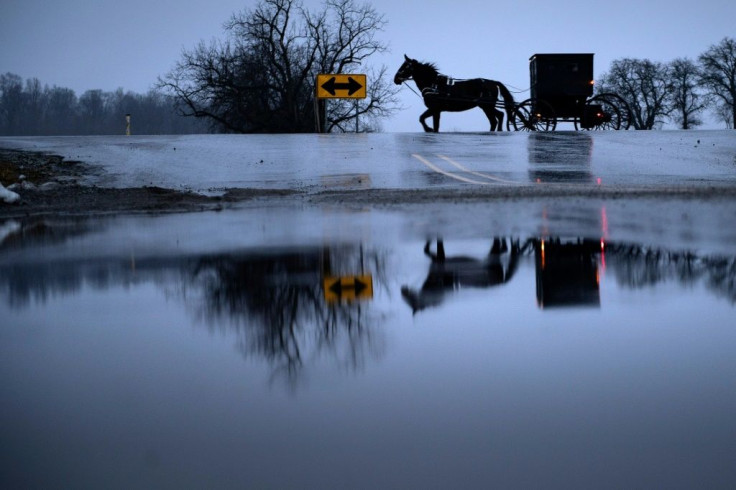Is This Amish Group The First To Reach Herd Immunity In The US?
KEY POINTS
- An Amish community may have achieved herd immunity, a local health official said
- Past infections may provide 'limited protection,' experts said
- Experts fear there may still be a risk of a future outbreak
A health official estimated that about 90% of the families in an Amish community in Pennsylvania had been affected by the coronavirus. Does this mean they have already reached the coveted herd immunity?
In the race towards achieving herd immunity as COVID-19 vaccines are being rolled out globally, an Amish community in Lancaster County's New Holland Borough reportedly had already crossed the mark. Allen Hoover, the administrator for the medical clinic that serves the community claimed so as at least one family member or 90% of the families is infected, according to the Associated Press (AP)
If true, this makes them the first community to achieve herd immunity in the U.S.
Widespread Outbreak
Members of the Amish community were compliant with the stay-at-home orders at the beginning of the pandemic, AP reported. By late April however, the community had resumed worship services which entailed sharing communion cups and church greetings even when the state was still under the stay-at-home orders.
Infections naturally followed suit, with many of the patients exhibiting COVID-19 symptoms. However, less than 10% of the patients agreed to be tested for COVID-19, so the exact extent of the outbreak is unclear.
The community had another surge of cases yet again in the Fall, but they are now considered rare. Hoover noted that no one had presented COVID-19 symptoms at the Parochial Medical Center in about six weeks.
'Rare' Herd Immunity
Herd immunity, whether naturally or through vaccination, is achieved when most of the population has become immune to an infectious disease, Johns Hopkins School of Public Health (JHSPH) explained. To achieve this, some 50 to 90% of the population typically has to be immune.
So has the Amish community in Lancaster County really achieved this?
Eric Lofgren of Washington State University is among the experts who noted that herd immunity through widespread infection is "rare, but possible." However, having been infected before may only provide limited protection.
"Herd immunity is only true at a given point in time," AP quoted Lofgren as saying. "It's not a switch that once it gets thrown, you're good. It'll wear off."
What's more, determining whether the community has actually reached herd immunity requires testing, Dr. Daniel N. Kragt of Dayspring Christian Health Care in Middlebury, Indiana, told AP. That would be difficult if the people don't consent to get tested, he added.
Sudden Outbreak Still Possible
As Hoover noticed, "faith" in herd immunity has led to people being quite lax in following precautionary measures such as mask-wearing and social distancing, which may be problematic and possibly prompt another outbreak.
"All it takes is one person who's contagious to give you this sudden outbreak," said David Lo, professor of biomedical sciences at the University of California, Riverside, the AP reported.
There's also the fact that no specific number determines whether a community has achieved herd immunity. In the case of COVID-19, the threshold is still unknown. Dr. Anthony Fauci has previously noted that it could be as high as 90%.
"The only true herd immunity that we can bring as a community is for people to be vaccinated," AP quoted executive director of Community Health at Penn Medicine Lancaster General Health Alice Yoder as saying.

© Copyright IBTimes 2025. All rights reserved.






















